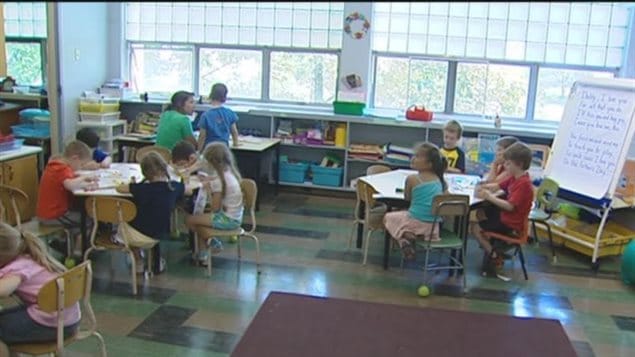A new study looks again at the question of young children, tv viewing time, and how that affects their performance as they enter kindergarten and grade-1.
But it also looks at whether there’s a difference between children from low-income families, compared to higher income families.
Caroline Fitzpatrick (PhD) is a co-author of the study. She is an affiliate researcher at the PERFORM Centre of Concordia University in Montreal.
Listen
The study was a joint effort between Concordia (PERFORM) and New York University’s Steinhardt School of Culture, Education, and Human Development.
The study was published Journal of Developmental & Behavioral Paediatrics under the title, “Family Socioeconomic Status Moderates Associations Between Television Viewing and School Readiness Skills”. (abstract HERE)
The study found that young children who watch more than two hours of tv a day have lower school preparedness levels.
This is such areas for example, as being able to focus, and retain information.
The study used guidelines of the American Paediatric Association. It had recommended no more than two hours of TV daily for children aged 2-5 years old. However, the Association has recently modified those guidelines reducing recommended screen time to one hour a day.
The researchers studied over 800 kindergarten children. The parents reported their income and also the number of hours their young children watched tv daily.
The findings highlighted differences in school performance depending upon the child’s socio-economic background, in that the TV viewing has a greater negative affect upon children from lower income backgrounds.

Children from families at or near the poverty line (estimated at $21,200/yr for a family of four) had the largest drop in school readiness as a result of more than 2 hours daily of tv; middle income families (est. at $74,200/yr) showed a lesser drop, and children from high income families ($127/yr family of four) showed no drop from extra tv viewing.
Professor Fitzpatrick suggests this may be due to wealthier families having a greater range of other activities to stimulate young children.
Executive functioning
To determine school readiness the study measured the children’s math skills and knowledge of letters and words as well as their “executive functioning”. This represents key cognitive and social-emotional competencies, including working memory, cognitive flexibility and inhibitory control. Executive functions are essential for everyday problem-solving and self-control of behaviours and emotional responses.
The study did not look at screen time from electronic devices such as video games, tablets, mobile phones etc. Professor Fitzpatrick says the research may look into those added factors in future studies, but for the moment she says parents should look towards reducing tv viewing for their young children, especially in lower and middle-income situations.
She also notes that it’s important for children to get a good start in kindergarten as that can have repercussions for years as the children pass through higher school levels.







For reasons beyond our control, and for an undetermined period of time, our comment section is now closed. However, our social networks remain open to your contributions.